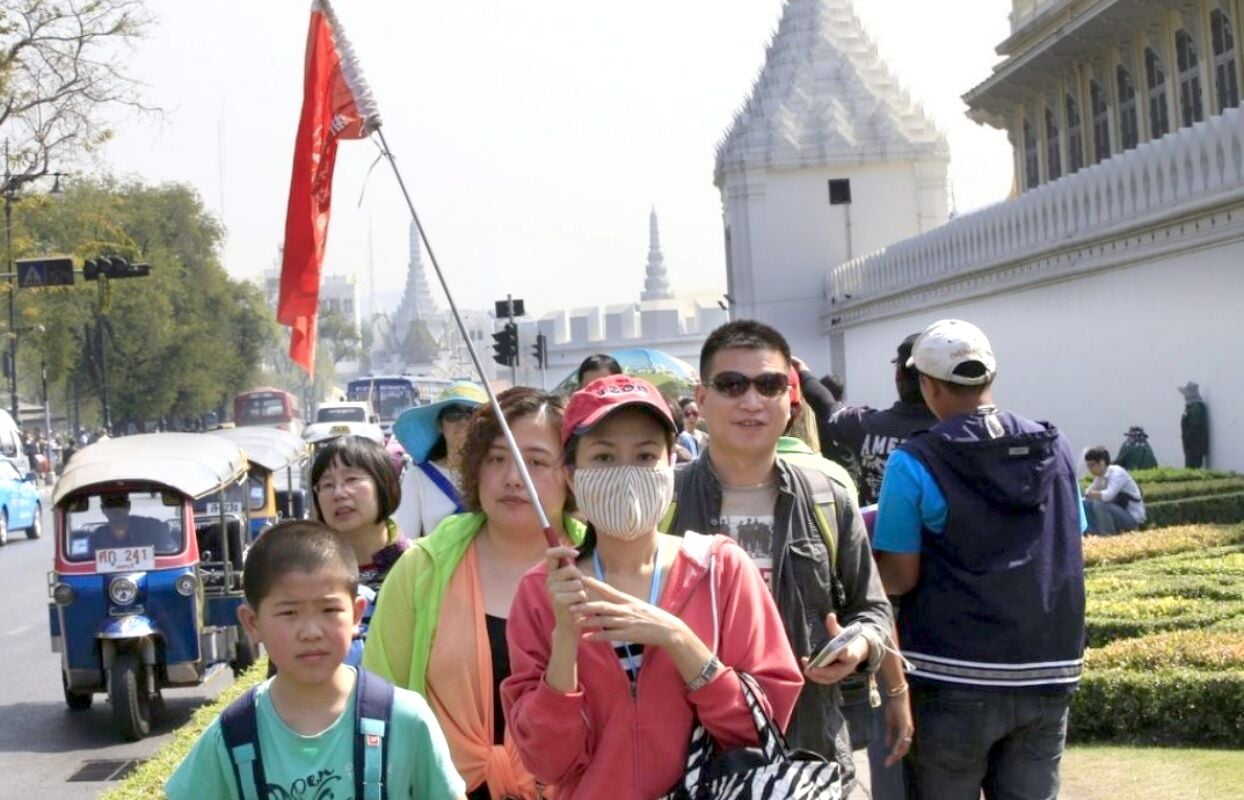Tour groups for seniors are experiencing a surge in popularity, offering tailored travel experiences that cater to the unique needs and preferences of older adults. This burgeoning market provides a diverse range of options, from relaxing river cruises to adventurous escorted tours and independent travel arrangements. Understanding the nuances of each option is key to ensuring a safe, enjoyable, and enriching experience for senior travelers.
This guide delves into the various aspects of senior travel, examining the different tour types available, the importance of accessibility and inclusivity, crucial health and safety considerations, pricing structures and value propositions, effective marketing strategies, and the valuable insights gleaned from customer reviews. We aim to provide a holistic perspective, empowering both potential travelers and tour operators to navigate this exciting sector of the travel industry.
Types of Tours for Senior Citizens
The travel industry is increasingly catering to the needs and preferences of the senior citizen demographic, offering a diverse range of tour options designed for comfort, accessibility, and enriching experiences. Understanding the various types of tours available is crucial for seniors seeking to explore the world while prioritizing their well-being and enjoyment.
Five Distinct Tour Types for Seniors
Several distinct tour types cater specifically to the unique needs and preferences of senior travelers. These options offer varied levels of independence, activity, and pace, ensuring a suitable choice for every senior adventurer.
| Tour Type | Target Audience (Specific Senior Demographics) | Key Features | Potential Challenges |
|---|---|---|---|
| River Cruises | Active seniors with moderate mobility, those seeking relaxation and scenic beauty; those interested in history and culture. | All-inclusive packages, comfortable accommodations, onboard amenities, scheduled excursions, minimal packing and unpacking. | Potential for seasickness, limited independent exploration, higher cost compared to other options. |
| Escorted Tours | Seniors seeking convenience and structure, those who prefer group travel and pre-arranged itineraries; those with limited mobility or travel experience. | Pre-planned itineraries, transportation, guided tours, accommodation, group camaraderie, ease of travel. | Less flexibility, potential for rushed itineraries, limited opportunities for personal exploration, dependence on the tour group. |
| Independent Travel (with assistance) | Active and independent seniors with good mobility and travel experience; those who prefer a personalized pace and flexibility. | Complete control over itinerary, freedom to explore at own pace, choice of accommodation and activities. May include assistance with booking flights and accommodations. | Requires more planning and organization, higher risk of unforeseen issues, potential for higher costs if not carefully planned. |
| Small Group Tours | Seniors seeking a balance between independence and group travel; those who prefer a more intimate travel experience. | Smaller group sizes allow for more personalized attention and interaction; often includes a mix of guided tours and free time. | Potentially higher cost per person than larger group tours; may have fewer itinerary options. |
| Adventure Tours (modified) | Active seniors with good health and mobility; those seeking physical activity and unique experiences. These tours will often have modified activities to suit senior capabilities. | Focus on outdoor activities like hiking (shorter distances), kayaking (calm waters), wildlife viewing; opportunities to experience nature and unique locations. | Higher physical demands, potential for injury, requires good physical fitness, may require specialized equipment. |
Comparison of River Cruises, Escorted Tours, and Independent Travel for Seniors
River cruises, escorted tours, and independent travel offer distinct advantages and disadvantages for senior travelers. River cruises provide all-inclusive convenience and scenic beauty, but limit independent exploration. Escorted tours offer structure and ease of travel, but may lack flexibility. Independent travel allows for personalized experiences but requires more planning and organization. The optimal choice depends on individual preferences, mobility, and budget.
Health and Safety Considerations: Tour Groups For Seniors

Prioritizing the health and safety of senior travelers is paramount for any successful tour. A well-structured approach, encompassing preventative measures, emergency preparedness, and comprehensive pre- and post-trip guidance, ensures a worry-free and enjoyable experience for all participants. This involves meticulous planning, clear communication, and a proactive response to potential health concerns.Proper planning significantly mitigates risks and enhances the overall safety of senior travelers.
This section details best practices, emergency protocols, and essential checklists to ensure a smooth and safe journey for older adults.
Emergency Preparedness Plan
A comprehensive emergency plan is crucial for addressing common health concerns among seniors during travel. This plan should include readily accessible contact information for local emergency services, designated tour guides trained in first aid and CPR, and pre-arranged transportation to nearby medical facilities. The plan should also detail procedures for handling specific medical emergencies, such as heart attacks, strokes, or falls, considering the unique vulnerabilities of senior citizens.
For instance, the plan might include pre-identified hospitals along the tour route, equipped to handle geriatric emergencies and readily accepting the senior travelers’ insurance information. Furthermore, the plan should Artikel communication protocols with family members or emergency contacts, ensuring timely updates and efficient coordination in case of unforeseen events. Regular drills and training for tour guides are essential to ensure the plan’s effectiveness.
Pre-Tour Checklist for Senior Travelers, Tour groups for seniors
Before embarking on a tour, seniors should undertake a thorough health check with their physician. This includes reviewing any existing medical conditions, medications, and allergies. It is essential to obtain updated prescriptions and ensure sufficient medication supply for the duration of the trip, plus a few extra days to account for unexpected delays. Travel insurance that covers medical emergencies and trip cancellations is also crucial.
Packing a small, easily accessible medical kit containing essential medications, bandages, antiseptic wipes, and any personal medical devices is highly recommended. A detailed itinerary shared with family members or emergency contacts, along with contact information for tour operators, adds an extra layer of safety.
During-Tour Precautions
During the tour, maintaining hydration and proper nutrition is vital, especially in varying climates. Regular breaks are essential to avoid exhaustion. Sensible footwear, comfortable clothing, and sun protection are key to preventing falls and heatstroke. Seniors should be encouraged to communicate any health concerns to the tour guide promptly. The tour guide should be attentive to signs of fatigue or discomfort, adjusting the itinerary as needed.
Maintaining a clear communication channel between seniors, guides, and emergency contacts ensures a prompt response to any unexpected health issues. For instance, having a designated check-in time each day can help identify any individuals who may require assistance.
Post-Tour Considerations
Following the tour, a follow-up communication with participants is important to ascertain their well-being. A brief health questionnaire can identify any post-trip health concerns. Gathering feedback on the tour’s health and safety aspects allows for continuous improvement and adjustment of future tour plans. This feedback can be used to refine emergency protocols and improve the overall experience for future senior travelers.
It is vital to emphasize the importance of seeking medical attention if any post-tour health issues arise, even if seemingly minor.
Planning a memorable and fulfilling travel experience for senior citizens requires careful consideration of various factors. From selecting the right tour type and ensuring accessibility to prioritizing health and safety, and understanding the value proposition of different packages, each element plays a vital role in creating a positive and enriching journey. By understanding the needs and preferences of this demographic, tour operators can create bespoke experiences that cater to a growing and discerning market, fostering lasting memories and enriching the lives of senior travelers worldwide.
Browse the implementation of educational vacations for adults in real-world situations to understand its applications.


